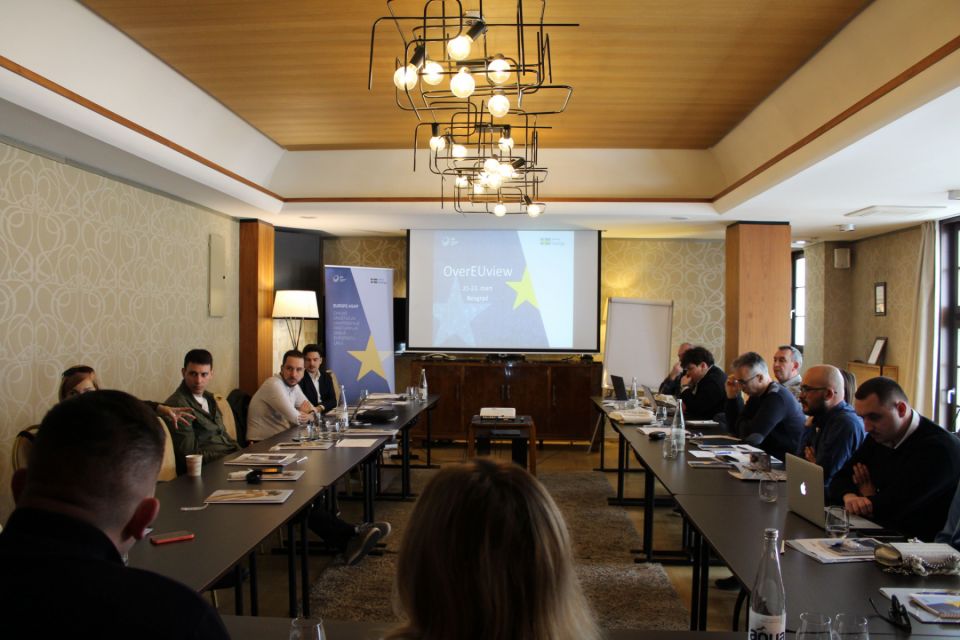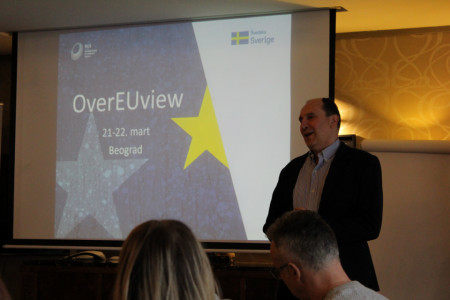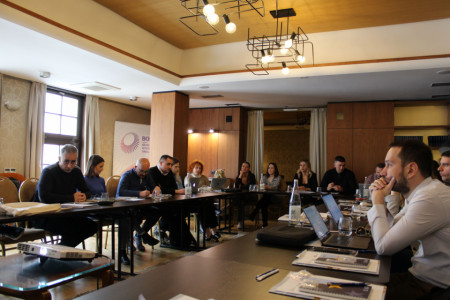Civil society representatives face daily challenges which make their work more difficult or impossible. Public criticism and targeting, difficulties with accessing relevant information and refusal to cooperate by media and/or institutions represent just some of the challenges which civil society organisations and media in Serbia are faced with.
Belgrade Open School organised an overview of the European integration process during a two-day meeting named „OverEUview“ with partners supported through the programme “Civil Society Advancing Serbia’s EU Accession Process: Europe ASAP”. During the meeting, questions and challenges that the partners faced during their work were discussed, as well as the state of the accession process of Serbia to the EU and difficulties during that process.
The discussion during the first day of the event was moderated by dr Miloš Petrović, a research associate at the Institute of International Politics and Economics. The focus of the discussion was on the challenges which the participants faced during their daily work, but also broader social issues which inhibit reforms during the EU integration process. Some of the challenges faced by the participants include misuse of tax and administrative inspections, public criticism and insults of certain civil society members by officials in power. The topic of European integration is often manipulated in the public space, and so citizens do not have a clear picture of what that process includes and how it affects their daily lives.
Following that, the participants mentioned noticing a lack of visibility of the topic of European integration in most media. It is notable that these topics have daily significant presence in other countries which are also in the process of EU accession, such as Montenegro, while in Serbia they do not have enough media presence. Considering the common misunderstanding of the process, the promotion of European integration should be the job of the state, while civil society should only have a supporting role of giving it the “wind at its back” in this process.
All of the aforementioned challenges and lack of promotion and transparency have a significant effect on the process of negotiations. Most participants agreed that lack of transparency represents a big problem which inhibits their work and makes getting relevant information more difficult.
The participants also discussed the effect of local media on the understanding of the processes of European integration among the citizens, where, according to the participants, the situation was even more dire. The local media representatives stated that even when they do report on this topic, they get no response among the public, and receive no attention.
The topic of frequent threats to journalists and civil society members was also discussed, which are rarely taken seriously by the authorities.
It was concluded that additional and continued connection of civil society members was needed, in order to establish closer cooperation and to address some of these problems together, as well as to offer suggestions for overcoming these problems.
The event was held on the 21st and 22nd of March, in Belgrade.
The Programme “Civil Society Advancing Serbia’s EU Accession Process: Europe ASAP” is implemented by the Belgrade Open School with the support of the Kingdom of Sweden.
Photographs: Belgrade Open School

 381 60 30 65 800
381 60 30 65 800









